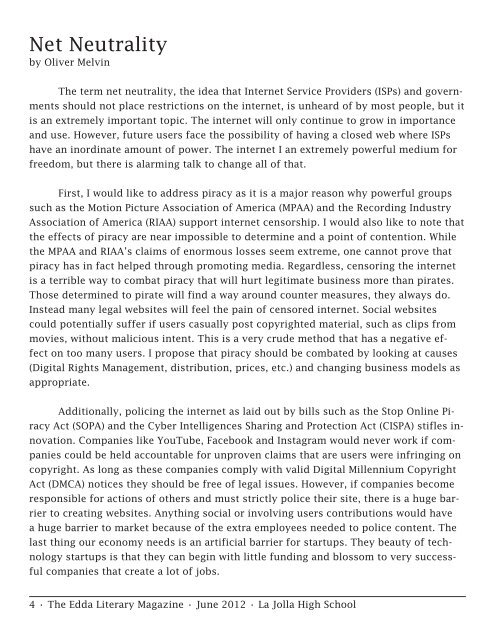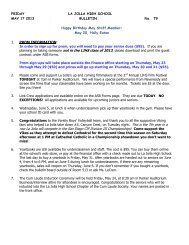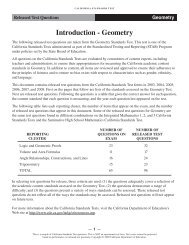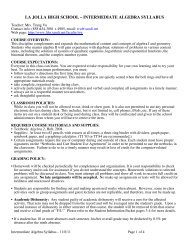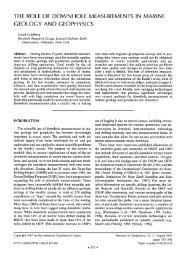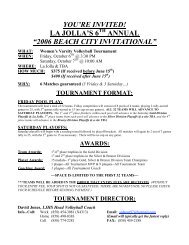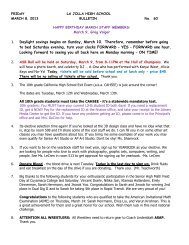The 2012 Edition - La Jolla High School
The 2012 Edition - La Jolla High School
The 2012 Edition - La Jolla High School
You also want an ePaper? Increase the reach of your titles
YUMPU automatically turns print PDFs into web optimized ePapers that Google loves.
Net Neutrality<br />
by Oliver Melvin<br />
<strong>The</strong> term net neutrality, the idea that Internet Service Providers (ISPs) and governments<br />
should not place restrictions on the internet, is unheard of by most people, but it<br />
is an extremely important topic. <strong>The</strong> internet will only continue to grow in importance<br />
and use. However, future users face the possibility of having a closed web where ISPs<br />
have an inordinate amount of power. <strong>The</strong> internet I an extremely powerful medium for<br />
freedom, but there is alarming talk to change all of that.<br />
First, I would like to address piracy as it is a major reason why powerful groups<br />
such as the Motion Picture Association of America (MPAA) and the Recording Industry<br />
Association of America (RIAA) support internet censorship. I would also like to note that<br />
the effects of piracy are near impossible to determine and a point of contention. While<br />
the MPAA and RIAA’s claims of enormous losses seem extreme, one cannot prove that<br />
piracy has in fact helped through promoting media. Regardless, censoring the internet<br />
is a terrible way to combat piracy that will hurt legitimate business more than pirates.<br />
Those determined to pirate will find a way around counter measures, they always do.<br />
Instead many legal websites will feel the pain of censored internet. Social websites<br />
could potentially suffer if users casually post copyrighted material, such as clips from<br />
movies, without malicious intent. This is a very crude method that has a negative effect<br />
on too many users. I propose that piracy should be combated by looking at causes<br />
(Digital Rights Management, distribution, prices, etc.) and changing business models as<br />
appropriate.<br />
Additionally, policing the internet as laid out by bills such as the Stop Online Piracy<br />
Act (SOPA) and the Cyber Intelligences Sharing and Protection Act (CISPA) stifles innovation.<br />
Companies like YouTube, Facebook and Instagram would never work if companies<br />
could be held accountable for unproven claims that are users were infringing on<br />
copyright. As long as these companies comply with valid Digital Millennium Copyright<br />
Act (DMCA) notices they should be free of legal issues. However, if companies become<br />
responsible for actions of others and must strictly police their site, there is a huge barrier<br />
to creating websites. Anything social or involving users contributions would have<br />
a huge barrier to market because of the extra employees needed to police content. <strong>The</strong><br />
last thing our economy needs is an artificial barrier for startups. <strong>The</strong>y beauty of technology<br />
startups is that they can begin with little funding and blossom to very successful<br />
companies that create a lot of jobs.<br />
4 • <strong>The</strong> Edda Literary Magazine • June <strong>2012</strong> • <strong>La</strong> <strong>Jolla</strong> <strong>High</strong> <strong>School</strong>


